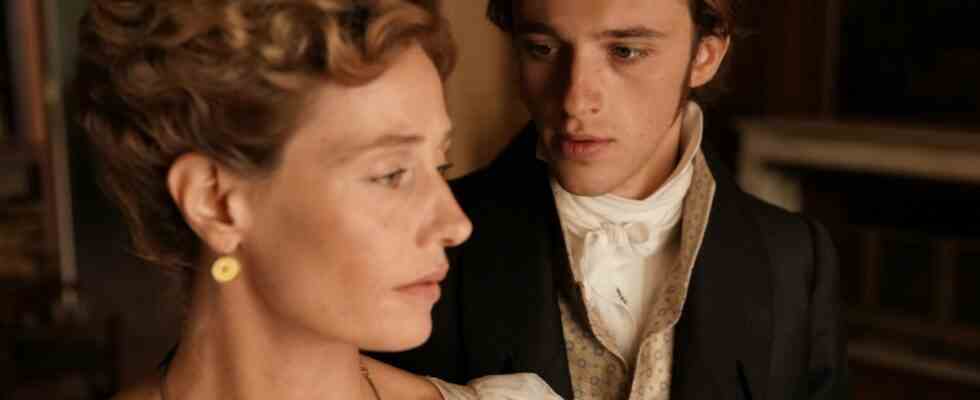Being a critic can sometimes be so simple. Especially when it comes to destroying authors and their works. Because the critic knows that he can turn everything into its opposite. If he is touched by a work, he writes that it is sentimental. If the book is written in a classic, simple style, then it’s conventional. The critic finds the text funny? The text is silly! Unpredictability is renamed confusion, clear structure predictability, and so on.
Lucien Chardon (or Lucien de Rubempré, as he also calls himself) learns this lesson fairly quickly. Paris’s most feared critic is the protagonist of “The Lost Illusions”, the famous novel by Honoré de Balzac, which Xavier Giannoli has now adapted into a new film. This is Restoration France, in the era before the July Revolution of 1830. Lucien (Benjamin Voisin), a young provincial printer and poet, follows his noble lover to the capital in search of poetry, beauty and love.
But its ideals turn out to be the title’s soon-lost illusions. Lucien cannot gain a foothold as a writer, and he falls out of favor in other ways too: his lover leaves him, his aristocratic protectors let him fall. The young man ends up in the gutter and as a waiter in a seedy student bar. There Lucien makes the acquaintance of the editor-in-chief of a liberal newspaper, who will drive out his noble literary ambitions and convert him to tabloid journalism – a veritable gold mine for the writing guild of the time.
Lucien began his career as a theater critic. His first text is not about the staging, which nobody cares about, but about the actress’ red stockings: a blatant declaration of wanting to sleep with her. The plan works, and Lucien gets a job at the newspaper in addition to being a stocking wearer. From then on he agitated against his enemies with a sharp pen and wrote poetry for his friends with a flowery pen.
Even then, nothing sold without Shitstorm
But who is friend and foe is decided solely by money. Because in this world where everything is for sale, newspapers and journalists are paid for by those they write about. Book publishers and authors, theater directors and actresses, oligarchs and bankers put a lot of cash on the table for courtesy texts and positive reviews, as well as for slating their competition – and sometimes even about themselves: without controversy, without a shit storm, nothing sells, no theater performances and no books. False reports and defamation are part of the daily business of this openly corrupt opinion press, which has consistently renounced the principles of truth.
Lucien gets rich and the champagne flows in torrents until things go steeply downhill again. Until then, the film mimics the frenetic energy of Scorsese’s Wolf of Wall Street in its expansive moments, and the candlelight of Kubrick’s Barry Lyndon in its contemplative moments. Gérard Depardieu rumbles around as a heavyweight publisher, while French-Canadian star director Xavier Dolan lends his delicate facial features to a royalist writer. The whole thing is entertaining and nice to look at. And yes, this Parisian press world around 1820, with its cult of buzzwords, provocations and opinions, is reminiscent of this discourse hell called Twitter, even before it was taken over by Elon Musik. The attention economy of the 19th century differs little from ours today.
Nevertheless, the film remains stuck in the past. On the one hand, because the times invoked here, in which print runs grew and the advertising business flourished, are far behind for newspapers in 2022. In addition, we no longer need a costume film to hold up a mirror to our media world. We are no longer under any illusions about what Twitter and the like can do.
Illusions perdues, France 2021. – Director: Xavier Giannoli. Book: Jacques Fieschi, Giannoli. Camera: Christophe Beaucarne. With Benjamin Voisin, Cecile de France, Gerard Depardieu, Xavier Dolan. Cinemien, 150 min. Theatrical release: December 22, 2022.

